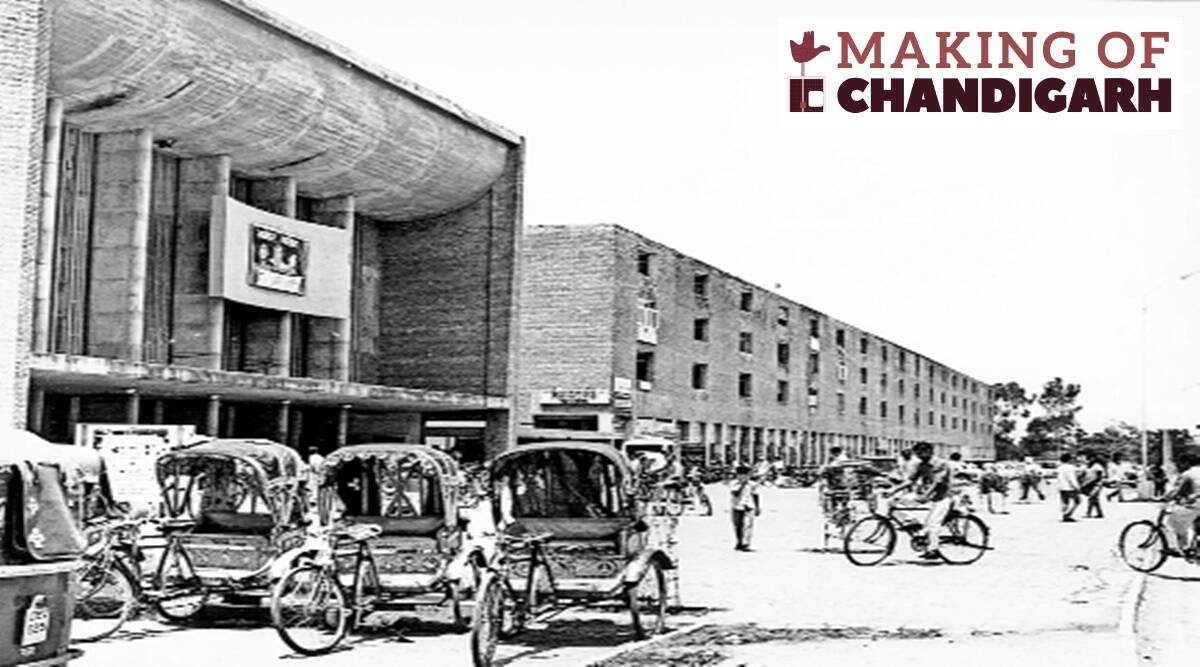Updated: January 24, 2022 4:22:00 am
 The system of aesthetic legislation was improved to create a harmonious street image. (Chandigarh College of Architecture)
The system of aesthetic legislation was improved to create a harmonious street image. (Chandigarh College of Architecture) Written by Nikhita Kinger
Le Corbusier and his team of architects comprising of Pierre Jeanneret, Maxwell Fry and Jane Drew were responsible for designing the city of Chandigarh. Corbusier designed mainly the master plan and iconic buildings, the others were in charge of designs in the neighborhood unit.
The housing within each sector is of two types: government and private. The design included unique architectural elements on its façade like jaalis (screens), creating a rhythmic play of solid and void with bricks and Brise-soleil (‘sun breaker’) forming an elegant envelope. These not only helped in good ventilation and sun control but also an aesthetic composition which is what we call the Chandigarh style of architecture.
The system of aesthetic legislation was improved to create a harmonious street image. Mainly three types of controls were framed for private residences. The first was Frame Control established in 1958 and was applicable on plots up to 10 marla (250 yards). It consists of two vertical elements which are the party walls and a top horizontal band together forming the frame. Anything constructed within the interior is entirely up to the owner. In Phase 2 it takes a stepped-terrace built form on the rear side with standard design of brick jaalis. For private housing, we need to understand that even though the interior is personal, the exterior falls under the public domain, for which we need to educate the residents on the importance of controls and maintain vocabulary and architectural expression which was envisaged at the time the city was built. Therefore, appropriate legislation is imperative for the growth and development of cities.
- The Indian Express website has been rated GREEN for its credibility and trustworthiness by Newsguard, a global service that rates news sources for their journalistic standards.

